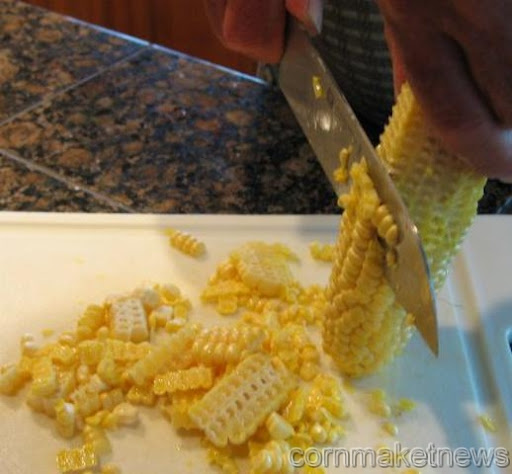Thursday, April 7, 2011
Corn Rises to Highest Price Since 2008 as Wet Weather Threatens Planting
 Corn rose to the highest price since 2008 in Chicago on speculation wet weather and snow in some parts of the U.S. will delay planting. Wheat headed for this year’s largest weekly climb.
Corn rose to the highest price since 2008 in Chicago on speculation wet weather and snow in some parts of the U.S. will delay planting. Wheat headed for this year’s largest weekly climb.
Rainfall in parts of the Midwest will “result in a sluggish start to spring planting,” Accuweather.com said yesterday. Snow still on the ground in parts of the U.S. northern Plains is threatening to delay seeding, Macquarie Group Ltd. analyst Alex Bos said in a report today.
“The U.S. Midwest has experienced relatively cool early April temperatures, which have led to a slow start to the planting season compared to last year,” he said. “The market is very concerned about the potential for spring planting delays, particularly in the northern Midwest, which still lies under a blanket of snow.”
Corn for May delivery gained 6.25 cents, or 0.8 percent, to $7.6925 a bushel at 12:51 p.m. London time on the Chicago Board of Trade. The grain reached $7.7325, the highest level since July 3, 2008. Prices are up 22 percent this year as world demand strengthens and stockpiles diminish.
Wheat advanced on speculation dry weather will curb production in the southern Great Plains of the U.S., the world’s largest exporter of the grain.
Extreme Drought
Parts of Kansas, Oklahoma and Texas, the largest winter- wheat-producing states in the U.S., are suffering from severe or extreme drought, according to the Drought Monitor website. Dry weather from western Kansas through West Texas will persist through April 12, Accuweather.com said.
“We are becoming increasingly concerned about production potential in the U.S. hard-red winter wheat areas,” Bos said. “Conditions remain too dry now during the critical growth period as the crop emerges from winter dormancy.”
Wheat for July delivery gained 3.75 cents, or 0.5 percent, to $8.22 a bushel. The grain is up 8.2 percent this week, on course for the biggest advance since the week ended Dec. 3. Prices surged 68 percent in the past year as Russia banned exports after its worst drought in a half-century.
About 37 percent of the U.S. crop was good or excellent as of April 3, down from 65 percent a year earlier, the Department of Agriculture said this week. The reading was the lowest for the date since 2002, USDA data show.
Milling wheat for May delivery traded on NYSE Liffe in Paris slipped 0.1 percent to 250.25 euros ($357.45) a metric ton.
Soybeans Climb
Soybeans advanced for a second day in Chicago on speculation that smaller plantings in the U.S., the world’s largest grower and exporter, may tighten global supply. The oilseed for May delivery gained 2.75 cents, or 0.2 percent, to $13.7925 a bushel.
Production of soybeans in the U.S. may fall to 3.169 billion bushels this year, Kyle Tapley, a senior agricultural meteorologist at MDA EarthSat Weather, said yesterday. Last year’s crop was estimated at 3.329 billion bushels, according to the USDA.
The oilseed “is the real market leader,” Wayne Gordon, an analyst at Rabobank Groep NV, said in a Bloomberg Television interview with Rishaad Salamat. “We will see lower production of those commodities and we would see a further step up in prices” as China sustained imports, he said.
Farmers in the U.S. will cut soybean plantings by 1 percent to 76.609 million acres this year, the USDA said March 31. Acreage is forecast to shrink as farmers switch to corn, encouraged by higher profits, it said.
U.S. soybean stockpiles on Sept. 1, before the harvest, may drop to 136 million bushels, according to a Bloomberg News survey of 30 analysts. That’s down 2.9 percent from last month’s estimate by the USDA, which will update its forecast on April 8.

This post was written by: HaMienHoang (admin)
Click on PayPal buttons below to donate money to HaMienHoang:
Follow HaMienHoang on Twitter














0 Responses to “Corn Rises to Highest Price Since 2008 as Wet Weather Threatens Planting”
Post a Comment